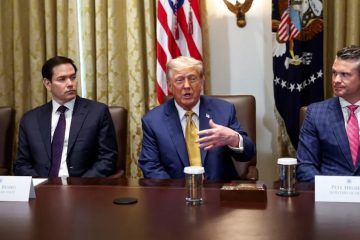Harvard is discussing selling $1 billion in private equity due to financial concerns

Harvard University’s endowment is currently engaged in discussions to divest approximately $1 billion in private equity fund stakes, amid a backdrop of financial uncertainty exacerbated by President Donald Trump’s threats and a lackluster market for returns on illiquid assets.
Harvard Management Co., which oversees the largest fund in US higher education, is collaborating with Jefferies Financial Group Inc. to divest the portfolio to Lexington Partners in a so-called secondaries transaction, according to individuals familiar with the situation. According to an anonymous source familiar with the private discussions, Lexington may ultimately engage partners in any potential purchase. The terms of the deal remain unfinalized and are subject to potential alterations. Representatives from Harvard Management, Lexington, and Jefferies opted not to provide any comments.
According to an annual report for the year ended in June, Harvard has allocated nearly 40 percent of its $53 billion endowment to private equity. Along with other universities, the school is experiencing pressure as investment firms encounter challenges in selling companies and returning capital to their limited partners. Investment returns that have been delayed have exerted pressure on liquidity at endowments, pensions, and family offices — compelling many to depend on the performance of their public stocks and bonds to satisfy immediate cash requirements or pursue secondary sales.
According to individuals familiar with the situation, the initiative to market the secondaries portfolio commenced last year. That occurred prior to Trump’s declaration of market-disrupting tariffs and his intensified confrontations with prestigious universities, such as Harvard, Princeton, Northwestern, Columbia, and Cornell. This month, the Trump administration suspended $2.2 billion in multi-year grants to Harvard, asserting that the institution did not adequately enforce civil rights laws to safeguard Jewish students. Harvard subsequently initiated legal action against the government after declining to acquiesce to the administration’s requests for modifications, which they deemed as jeopardizing its autonomy and extending well beyond the matter of addressing antisemitism.
In reaction to Harvard’s defiance, the president proposed that the Internal Revenue Service ought to classify the university as a “political entity,” a decision that would adversely impact the institution’s finances and complicate efforts to secure donations from benefactors. In response to governmental pressure, the school declared a hiring freeze in March and issued $750 million in bonds this month.
Lexington, a unit of Franklin Resources Inc., stands out as one of the largest investors in secondary transactions, a trend that has surged in prominence due to a decline in distributions from private equity managers. Last year, Lexington finalized a remarkable $22.7 billion secondaries fund.
Yale’s endowment is additionally considering secondary sales. According to a spokesperson from Yale, Evercore Inc. is providing guidance on a process concerning the $41 billion endowment that has been developing over several months. The fund continues to uphold its dedication to private equity and is actively pursuing new commitments, the spokesperson stated. Yale has refrained from revealing a target size for a sale.
Harvard’s endowment had initially lagged in the private equity asset class, but has significantly increased its involvement in recent years. The fund achieved a 10-year annualized return of 7.6 per cent. The latest fiscal year recorded a return of 9.6 per cent.








